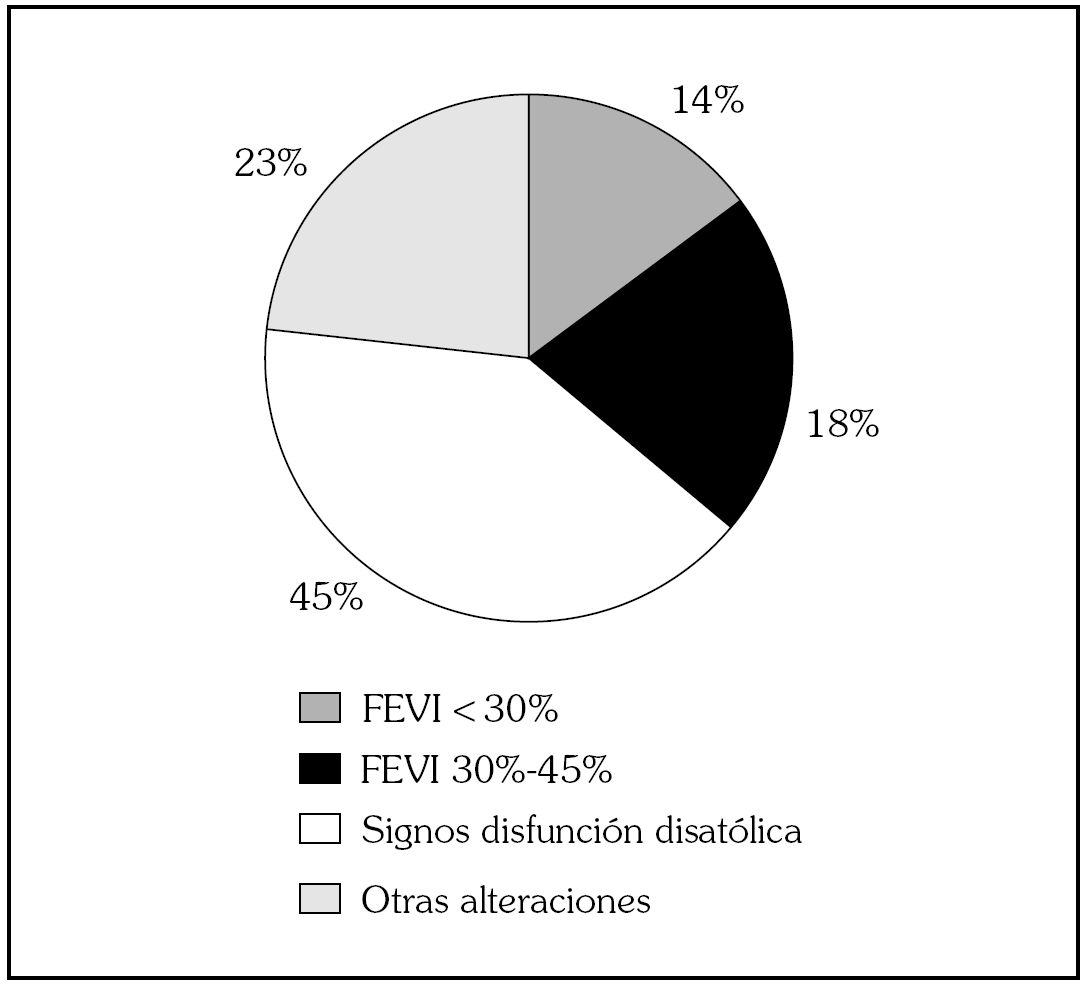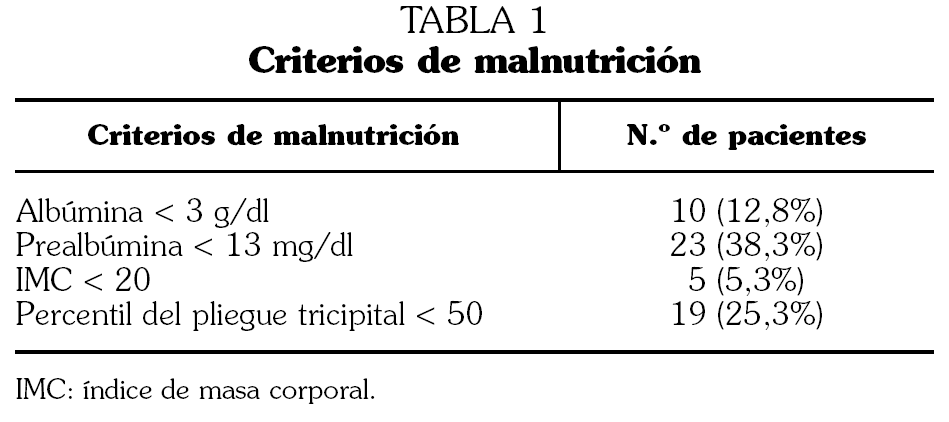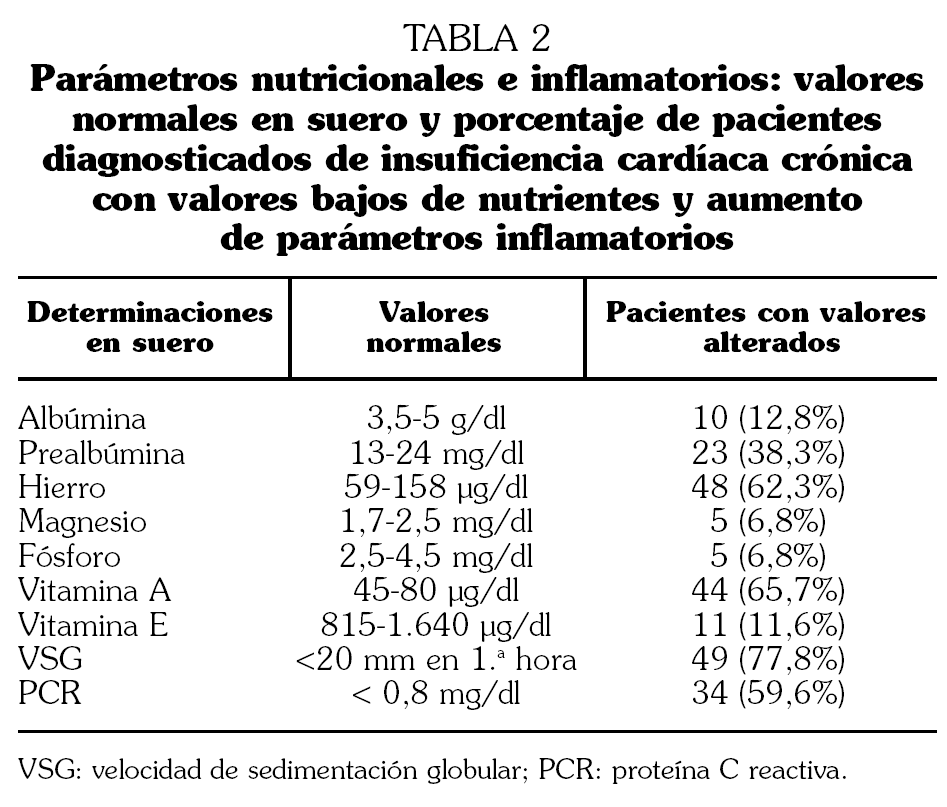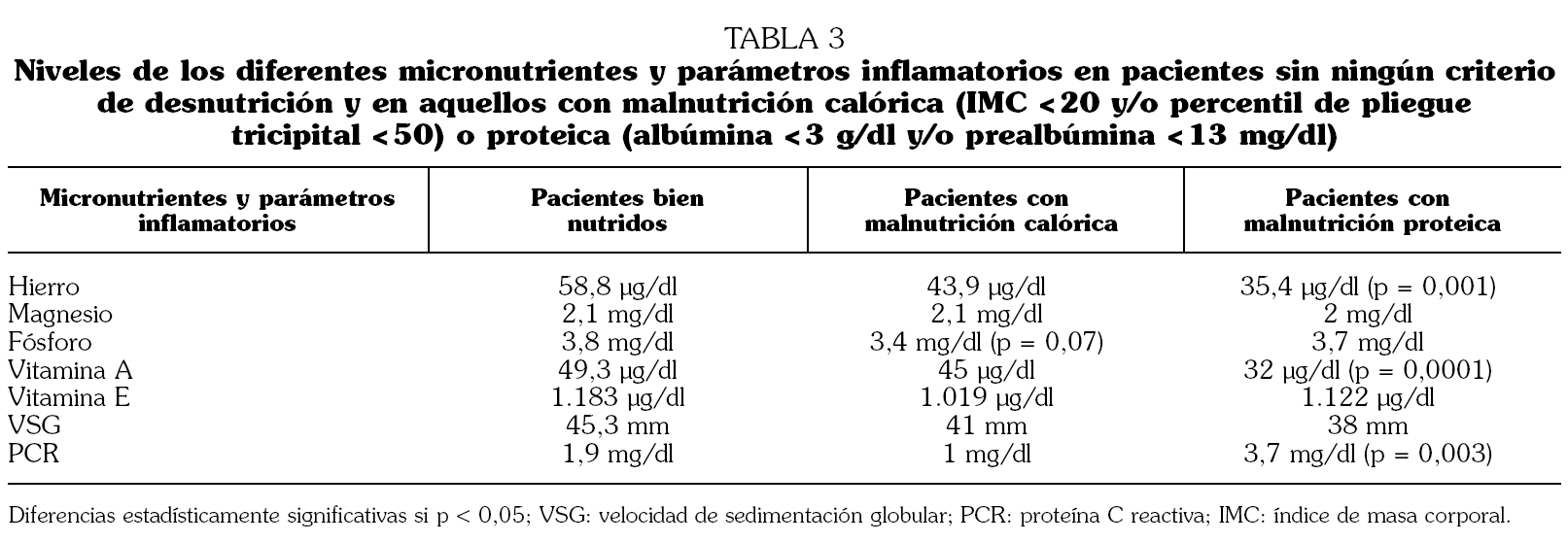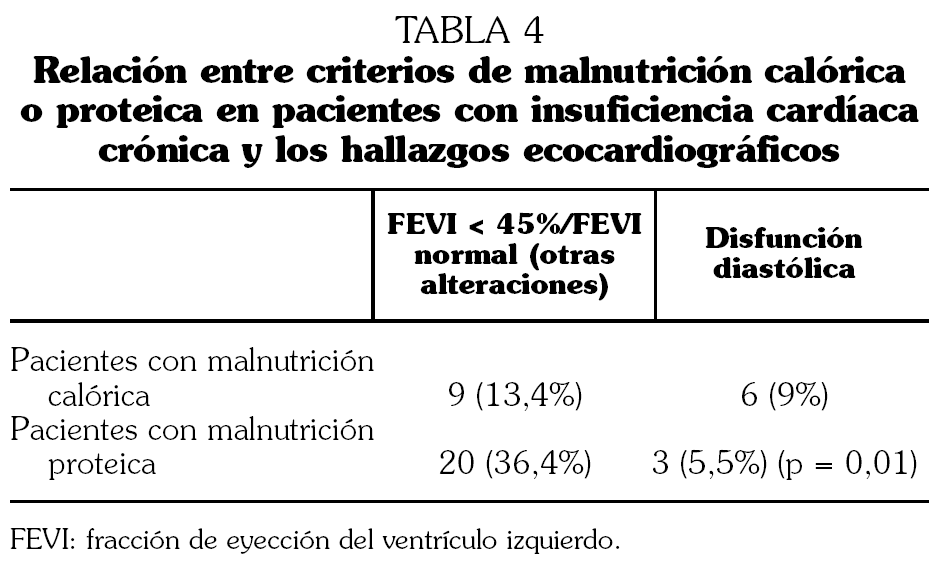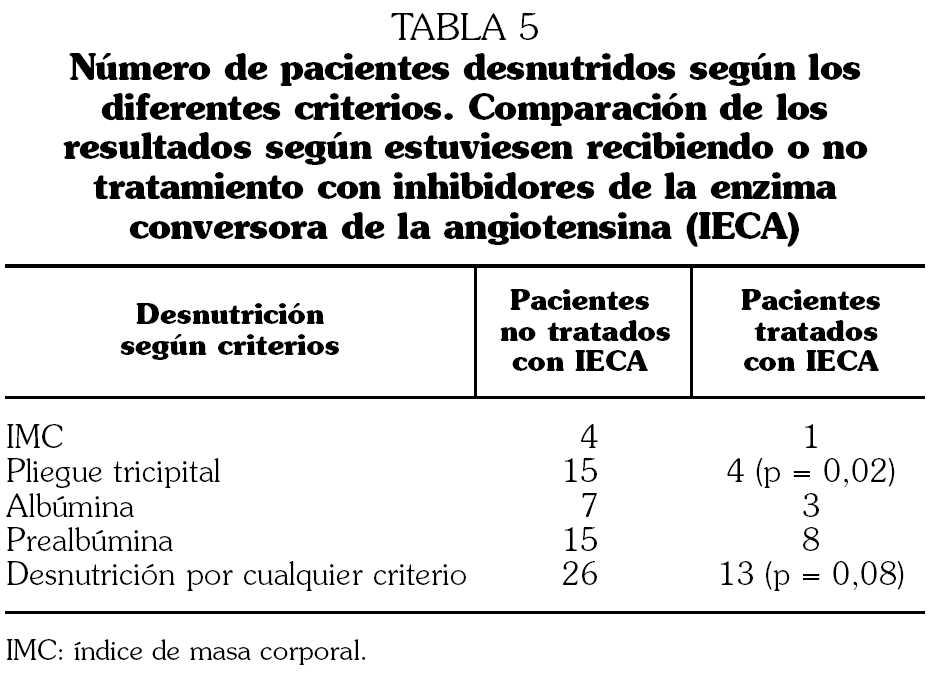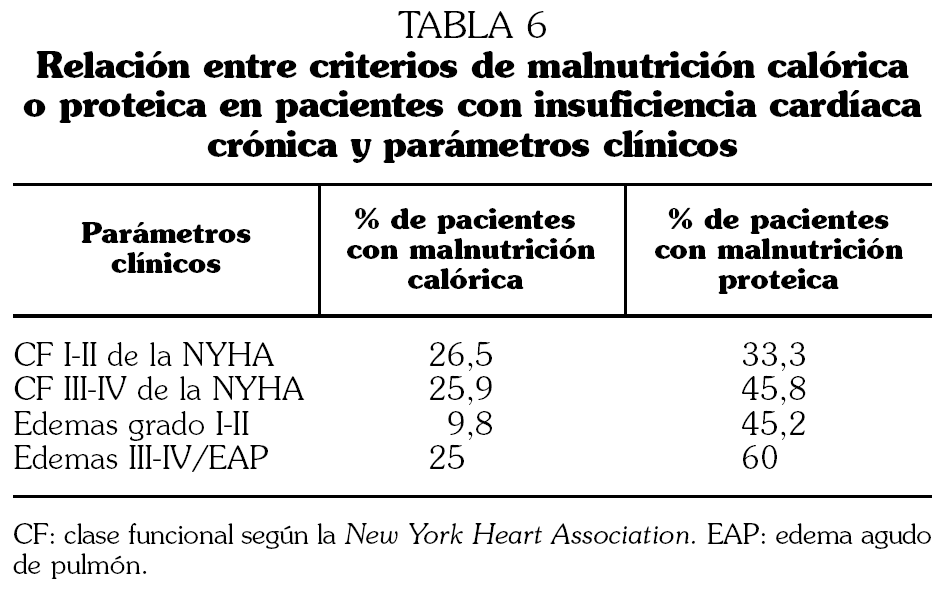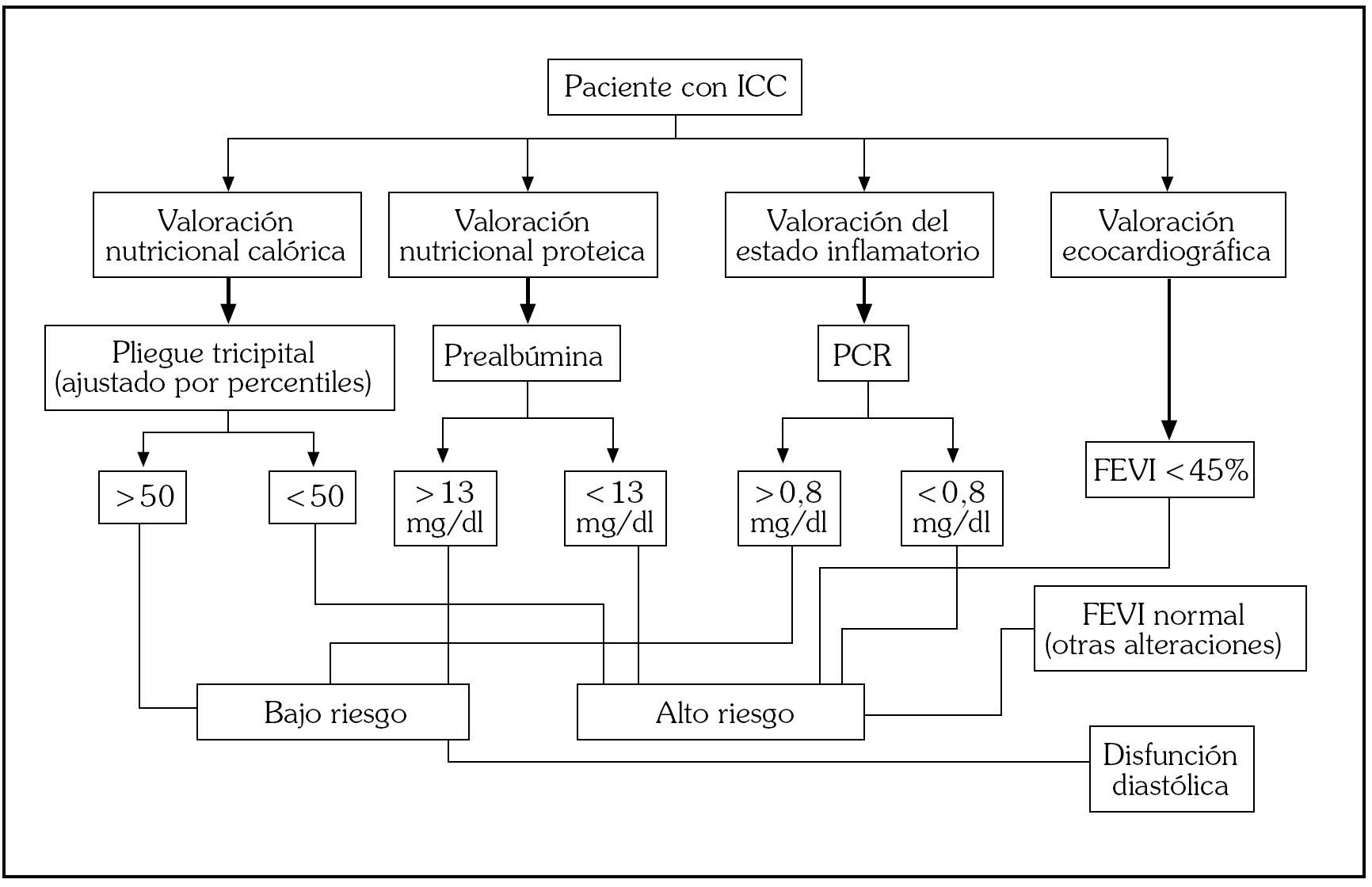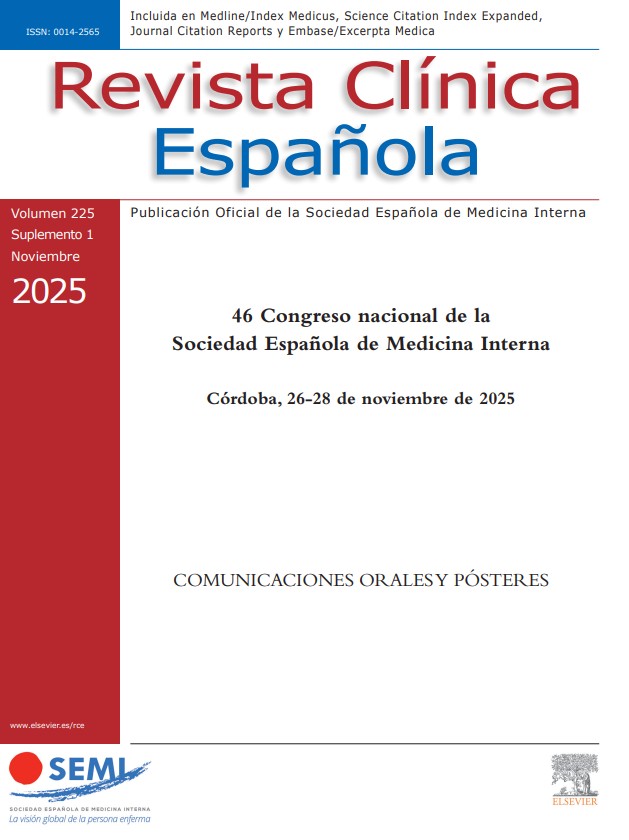La insuficiencia cardíaca (IC) se asocia a alteraciones en el estado nutricional que contribuyen a empeorar el pronóstico de la enfermedad. Objetivo. Evaluar la prevalencia de malnutrición proteico-calórica (MPC), déficit de micronutrientes y aumento de parámetros inflamatorios en pacientes con IC. Material y métodos. Estudio observacional transversal de 98 pacientes (< 60 años) con IC ingresados en Medicina Interna. Se han analizado variables biomédicas, ecocardiográficas, antropométricas (peso, talla, índice de masa corporal [IMC], pliegue tricipital), registro de tratamientos específicos para la IC y determinación de albúmina, prealbúmina, hierro, magnesio, fósforo, vitaminas del grupo A y E, velocidad de sedimentación globular (VSG) y proteína C reactiva (PCR). Hemos definido desnutrición proteica como albúmina < 3 g/dl o prealbúmina < 13 mg/dl y desnutrición calórica como IMC < 20 o pliegue tricipital por debajo del percentil 50. Resultados. Edad media: 76,6 ± 7,5. El 77,7% presentaba una clase funcional II-III/IV. La prevalencia de MPC fue del 40%. Se encontró albúmina y prealbúmina bajas en el 12,8% y el 38,3%, respectivamente (p < 0,05). Con el IMC se detectó desnutrición en el 5,3% y con el pliegue tricipital en el 25,3% (p< 0,05). Los niveles de hierro y vitamina A fueron menores y la PCR más elevada, de forma significativa, en pacientes con desnutrición proteica (p < 0,05). El porcentaje de malnutrición proteica en pacientes con fracción de eyección del ventrículo izquierdo (FEVI) < 45% fue del 16,4% frente al 5,5% en disfunción diastólica (p = 0,01). El porcentaje de pacientes que tomaba inhibidores de la enzima conversora de la angiotensina (IECA) fue del 42,2%. Se constataron diferencias casi significativas (p = 0,08) en el número de enfermos malnutridos por cualquier criterio entre los que tomaban IECA y los que no (el 13% frente al 26%). Conclusiones. Existe una alta prevalencia de malnutrición por distintos criterios (menor en pacientes con disfunción diastólica) y elevación de PCR en pacientes con estadios no muy avanzados de IC. Los pacientes que reciben tratamiento con IECA presentan mejores parámetros nutricionales.
Palabras clave:
insuficiencia cardíaca, malnutrición proteico-calórica, micronutrientes, inflamación
Heart failure is associated to alterations in the nutritional status that contributes to a worse prognosis of the disease. Objective. To study protein-calorie malnutrition (PEM) prevalence, micronutrient deficits and increase of inflammatory parameters in patients with cardiac failure (CF). Material and methods. Cross-sectional, observational study in 98 heart failure patients of Internal Medicine Service have been evaluated. We have analyzed biomedical, anthropometric variables (weight, size, BMI, tricipital fold), search of treatments, echocardiogram valuation and determination of albumin, pre-albumin, A and E group vitamins, ESR and C-reactive protein. We have defined protein malnutrition (PN) as albumin values < 3 g/dl or prealbumin < 13 mg/dl; and energy malnutrition (EM) as BMI < 20 or tricipital fold values lower than percentile 50. Results. Average age was 76.6 ± 7.5. A total of 77.7% showed a functional class II-III/IV. Prevalence of PEM was 40%. Low albumin and prealbumin was found in 12.8% and 38.3% respectively (p < 0.05). Using BMI, 5.3% of patients had malnutrition. Nevertheless, if tricipital fold is used, EM was found in the 25.3% of the cases (p < 0.05). Iron iron, vitamin A and C-reactive protein levels were differenct in heart failure patients with PM (p < 0.05). The percentage of protein malnutrjiton in patients with LVEF < 45% was 16.4% versus 5.5% in diastolic dysfunction (p = 0.01). Treatment with ACE-inhibitors was 42.2%; in this group the malnutrition for any criterion was 13% vs 26% in the group of patients without ACE-inhibitors (p = 0.08). Conclusions. There is a high prevalence of nutritional and inflammatory disturbances (low in diastolic dysfunction) in patients with moderate status of heart failure. Treatment with an ACE-inhibitor improves the nutritional parameters.
Keywords:
heart failure, protein-calorie malnutrition, micronutrients, inflammation





